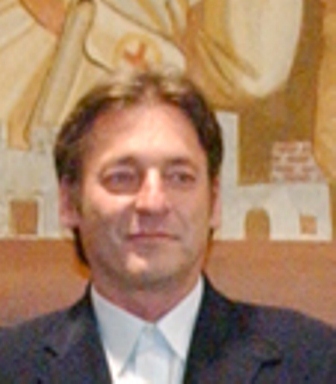|
Peter Vodopivec
Peter Vodopivec (born 7 July 1946) is a Slovenian historian and public intellectual. He was born in a Slovene family in Belgrade, Serbia, then capital of the Socialist Federal Republic of Yugoslavia. He studied History, Comparative Literature and Sociology at the University of Ljubljana. He received a PhD in History in 1978 with his thesis "Middle Class Social and Economic Ideas in Inner-Austria in Pre-March period", and afterwards worked as a researcher on the Age of Enlightenment in France and in the United States. During the late 1960s, he was active in the student movement in Slovenia. In the 1980s, he was one of the co-founders of the alternative journal '' Nova revija''. In 1989, he was among the founding members of the Slovenian Democratic Union. After 1992, he left politics and dedicated himself to scholarly work. He was Professor of Modern European and American History at the University of Ljubljana from 1980 to 1999. Since 1999 he has been a senior research fellow a ... [...More Info...] [...Related Items...] OR: [Wikipedia] [Google] [Baidu] |
Boris Furlan
Boris Furlan (10 November 1894 – 10 June 1957)Brecelj, Marijan. 1978. "Borut Furlan." ''Primorski slovenski biografski leksikon'', vol. 5. Gorizia: Goriška Mohorjeva družba, p. 394.Jevnikar, Martin. 1989. "Boris Furlan." ''Enciklopedija Slovenije'', vol. 3. Ljubljana: Mladinska knjiga, p. 162. was a Slovenian jurist, philosopher of law, translator and liberal politician. During World War II, he worked as a speaker on Radio London, and was known as "London's Slovene voice". He served as a Minister in the Tito–Šubašić coalition government. In 1947, he was convicted by the Yugoslav Communist authorities at the Nagode Trial. Early life and career He was born in a middle class Slovene family in Trieste, then part of the Austro-Hungarian Empire (today in Italy). He attended private Slovene language schools in Trieste. As a teenager, he attended an intensive English course at the local Berlitz language school, where he was a pupil of the Irish novelist James Joyce. Afte ... [...More Info...] [...Related Items...] OR: [Wikipedia] [Google] [Baidu] |
Writers From Belgrade
A writer is a person who uses written words in different writing styles and techniques to communicate ideas. Writers produce different forms of literary art and creative writing such as novels, short stories, books, poetry, travelogues, plays, screenplays, teleplays, songs, and essays as well as other reports and news articles that may be of interest to the general public. Writers' texts are published across a wide range of media. Skilled writers who are able to use language to express ideas well, often contribute significantly to the cultural content of a society. The term "writer" is also used elsewhere in the arts and music, such as songwriter or a screenwriter, but also a stand-alone "writer" typically refers to the creation of written language. Some writers work from an oral tradition. Writers can produce material across a number of genres, fictional or non-fictional. Other writers use multiple media such as graphics or illustration to enhance the communication of th ... [...More Info...] [...Related Items...] OR: [Wikipedia] [Google] [Baidu] |
University Of Ljubljana Alumni
A university () is an institution of higher (or tertiary) education and research which awards academic degrees in several academic disciplines. ''University'' is derived from the Latin phrase ''universitas magistrorum et scholarium'', which roughly means "community of teachers and scholars". Universities typically offer both undergraduate and postgraduate programs. The first universities in Europe were established by Catholic Church monks. The University of Bologna (), Italy, which was founded in 1088, is the first university in the sense of: *being a high degree-awarding institute. *using the word ''universitas'' (which was coined at its foundation). *having independence from the ecclesiastic schools and issuing secular as well as non-secular degrees (with teaching conducted by both clergy and non-clergy): grammar, rhetoric, logic, theology, canon law, notarial law.Hunt Janin: "The university in medieval life, 1179–1499", McFarland, 2008, , p. 55f.de Ridder-Symoens, Hilde' ... [...More Info...] [...Related Items...] OR: [Wikipedia] [Google] [Baidu] |
Quadrant (magazine) People
Quadrant may refer to: Companies * Quadrant Cycle Company, 1899 manufacturers in Britain of the Quadrant motorcar * Quadrant (motorcycles), one of the earliest British motorcycle manufacturers, established in Birmingham in 1901 * Quadrant Private Equity, an Australian investment firm * Quadrant Records, an independent record label * Quadrant Televentures Ltd., a subsidiary of Videocon Telecom, India Geography * A quadrant or section in a city street nomenclature system, see Address (geography)#Quadrants * Quadrants of Washington, D.C. Mathematics * Quadrant (circle), a circular sector equal to one quarter of a circle, or half a semicircle * Quadrant (plane geometry), a sector of a two-dimensional Cartesian coordinate system * Quadrant (solid geometry) Military * , a Second World War British/Australian warship * First Quebec Conference, 1943 (codenamed "QUADRANT") Science and technology * Galactic quadrant, one out of four circular sectors in the division of the Milk ... [...More Info...] [...Related Items...] OR: [Wikipedia] [Google] [Baidu] |
Historians Of The Balkans
A historian is a person who studies and writes about the past and is regarded as an authority on it. Historians are concerned with the continuous, methodical narrative and research of past events as relating to the human race; as well as the study of all history in time. Some historians are recognized by publications or training and experience.Herman, A. M. (1998). Occupational outlook handbook: 1998–99 edition. Indianapolis: JIST Works. Page 525. "Historian" became a professional occupation in the late nineteenth century as research universities were emerging in Germany and elsewhere. Objectivity During the '' Irving v Penguin Books and Lipstadt'' trial, people became aware that the court needed to identify what was an "objective historian" in the same vein as the reasonable person, and reminiscent of the standard traditionally used in English law of "the man on the Clapham omnibus". This was necessary so that there would be a legal benchmark to compare and contrast the schola ... [...More Info...] [...Related Items...] OR: [Wikipedia] [Google] [Baidu] |
Living People
Related categories * :Year of birth missing (living people) / :Year of birth unknown * :Date of birth missing (living people) / :Date of birth unknown * :Place of birth missing (living people) / :Place of birth unknown * :Year of death missing / :Year of death unknown * :Date of death missing / :Date of death unknown * :Place of death missing / :Place of death unknown * :Missing middle or first names See also * :Dead people * :Template:L, which generates this category or death years, and birth year and sort keys. : {{DEFAULTSORT:Living people 21st-century people People by status ... [...More Info...] [...Related Items...] OR: [Wikipedia] [Google] [Baidu] |
1946 Births
Events January * January 6 - The first general election ever in Vietnam is held. * January 7 – The Allies recognize the Austrian republic with its 1937 borders, and divide the country into four occupation zones. * January 10 ** The first meeting of the United Nations is held, at Methodist Central Hall Westminster in London. ** ''Project Diana'' bounces radar waves off the Moon, measuring the exact distance between the Earth and the Moon, and proves that communication is possible between Earth and outer space, effectively opening the Space Age. * January 11 - Enver Hoxha declares the People's Republic of Albania, with himself as prime minister. * January 16 – Charles de Gaulle resigns as head of the French provisional government. * January 17 - The United Nations Security Council holds its first session, at Church House, Westminster in London. * January 19 ** The Bell XS-1 is test flown for the first time (unpowered), with Bell's chief test pilot Jack Woolams at the c ... [...More Info...] [...Related Items...] OR: [Wikipedia] [Google] [Baidu] |
Peter Štih
Peter Štih (born 27 November 1960) is a Slovenian historian, specialising in medieval history. Štih was born in Ljubljana, but spent most of his childhood years in the town of Most na Soči in the Goriška region of western Slovenia. He attended grammar school in Tolmin and studied history at the University of Ljubljana, where he graduated in 1983. In 1993 he obtained his PhD under the supervision of the historian Bogo Grafenauer. Between 1992 and 1994 he was assistant researcher at the Institute for Austrian History (''Institut für Österreichische Geschichtsforschung''), part of the University of Vienna. Štih teaches medieval history of the Slovene Lands and the Balkans at the University of Ljubljana. He also teaches at the University of Maribor. An associate member of the Slovenian Academy of Sciences and Arts since 2007, he became a full member in 2015. He is also a member of the Austrian Academy of Sciences. He is the author of several publications on the medieval his ... [...More Info...] [...Related Items...] OR: [Wikipedia] [Google] [Baidu] |
Vasko Simoniti
Vasko Simoniti (born 23 March 1951) is a Slovenian historian and politician. Between 2004 and 2008, he served as the Minister of Culture of Slovenia, being reappointed in 2020. He is an active member of the Slovenian Democratic Party. Early life and academic career Simoniti was born in Ljubljana as the son of the renowned composer and choir leader Rado Simoniti who had moved to the Slovenian capital from the Goriška region in the 1930s in order to escape the violent policies of Fascist Italianization in the Julian March. Vasko attended the Classical Lyceum of Ljubljana. He studied at the University of Ljubljana, graduating with a degree in history in 1977. After a short period of work in the public administration of the Socialist Republic of Slovenia, he started teaching at the Ljubljana University in 1981. In 1989 he obtained his PhD at the same university and started teaching history, specializing in Slovenian history from the 16th to the 18th century. As a historian, he ... [...More Info...] [...Related Items...] OR: [Wikipedia] [Google] [Baidu] |
Pohlin
Marko Pohlin born Anton Pohlin (13 April 1735 – 4 February 1801), was a Slovene philologist and author. He is generally considered the first exponent of the Age of Enlightenment in the Slovene Lands. He was baptized Antonius Puhlin in Ljubljana, in what was then the Duchy of Carniola in the Habsburg monarchy, born the son of a tavern owner. He studied in Jesuit colleges in Novo Mesto and Ljubljana, and joined the Augustinian order. He is best known for his book ''Kraynska grammatika'' (Carniolan Grammar), a grammar of Slovene written in German. In it, Pohlin attempted to modernize Adam Bohorič's sixteenth-century grammar. The work is especially important for its preface, in which Pohlin praised Slovene and rejected those that regarded it as rough and unworthy of being used in literature. Pohlin also composed a Slovene–German–Latin dictionary entitled ''Tu malu besedishe treh jesikov'' (Small Trilingual Dictionary) or ''Dictionarium slavicum carniolicum'' (Slavic-Carniol ... [...More Info...] [...Related Items...] OR: [Wikipedia] [Google] [Baidu] |





